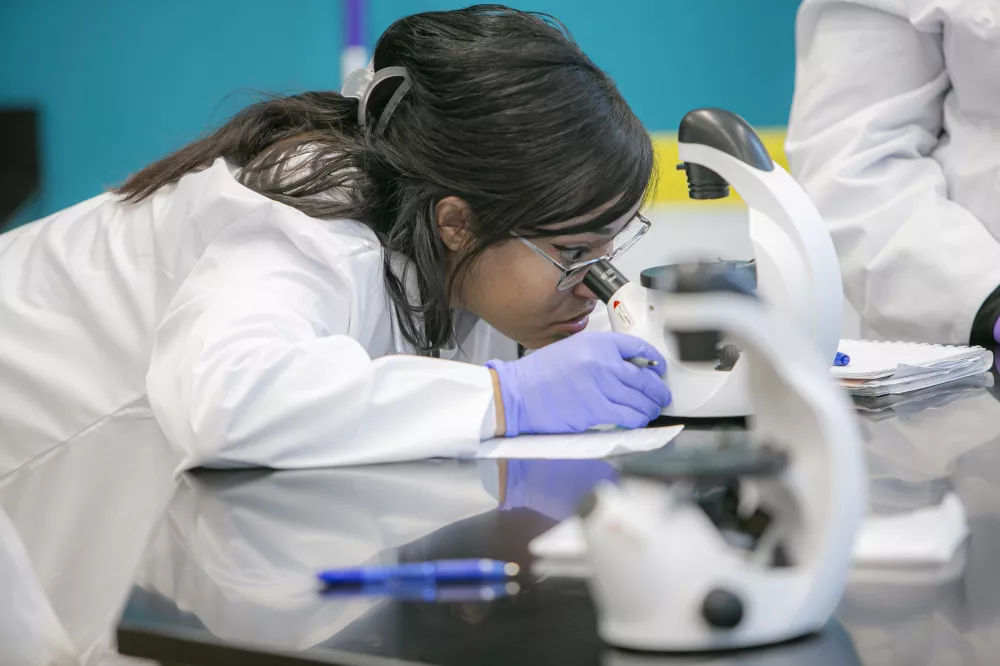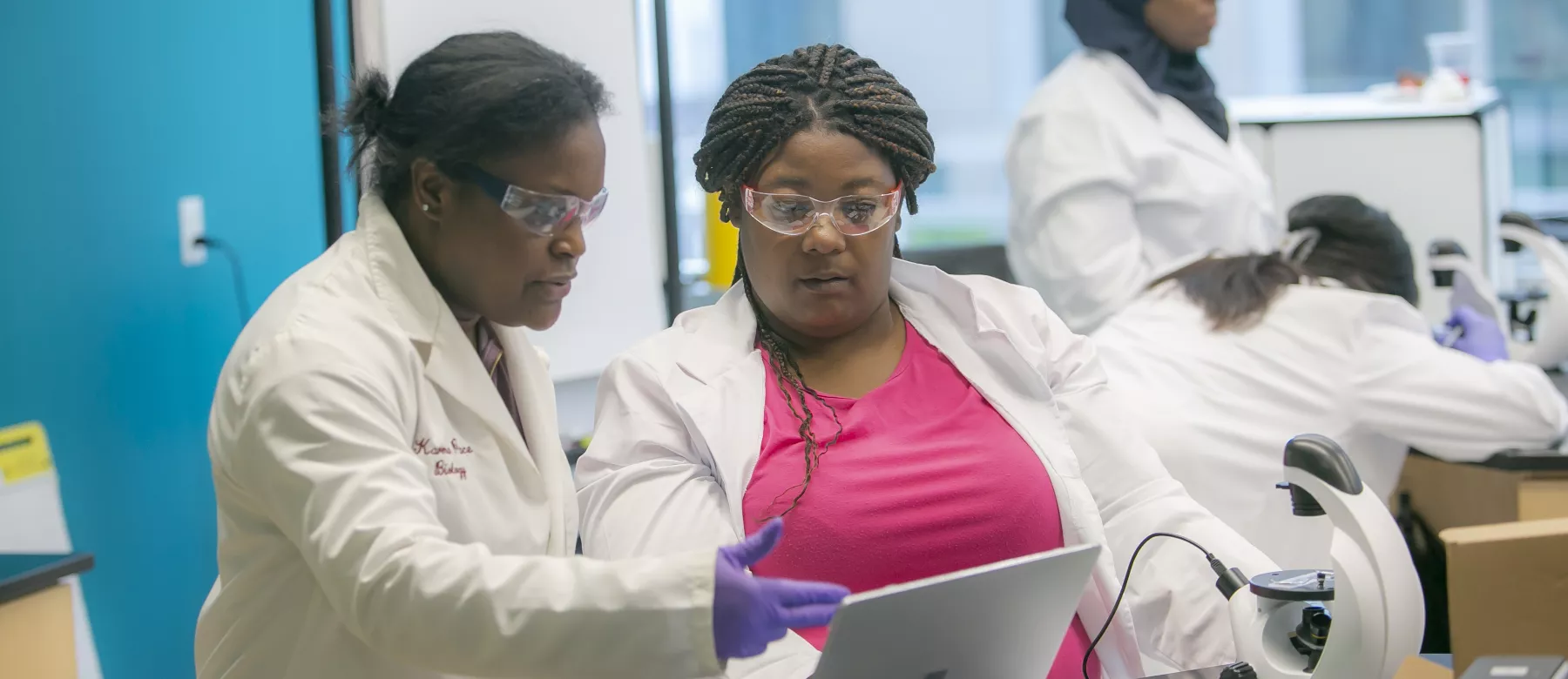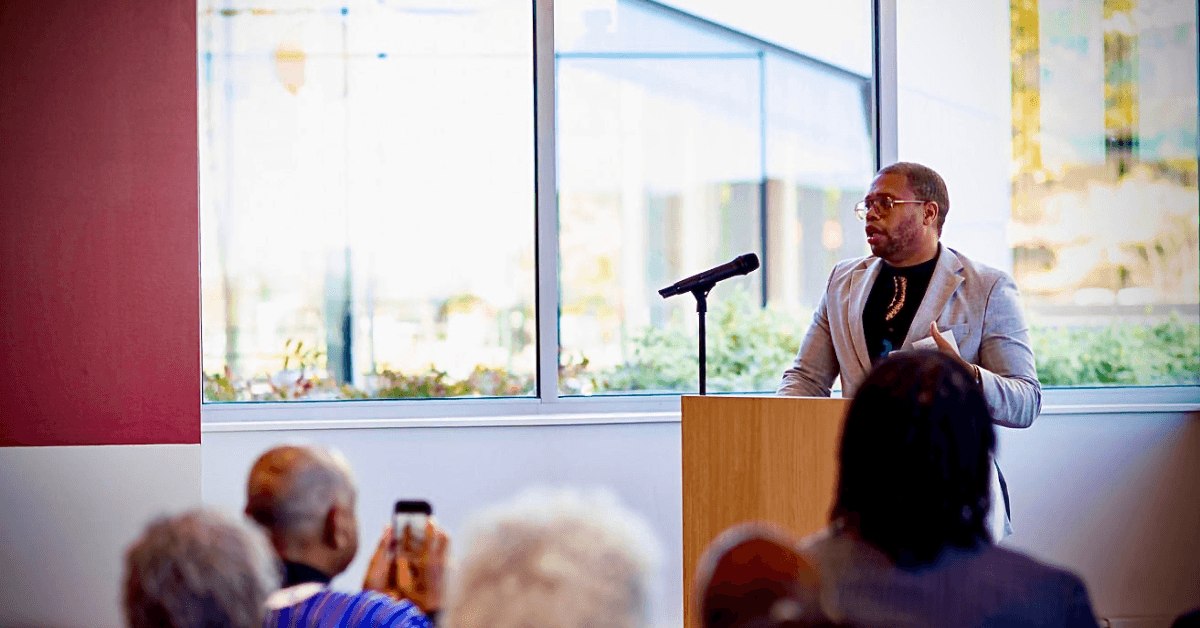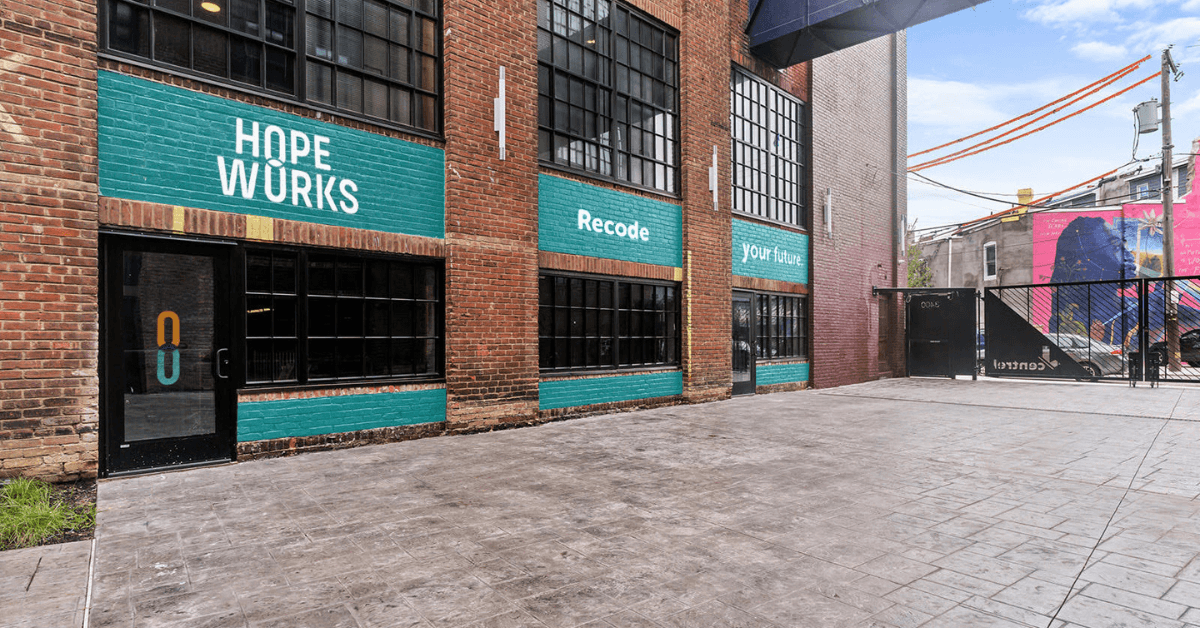Key Insights:
- BULB is a workforce development program for people without college degrees to gain exposure to the life sciences field.
- The program has had six cohorts since its inception in 2020, a majority of whom are women and Black.
- Graduates of the BULB program have gone on to work opportunities at companies such as Century Therapeutics and CIC Philadelphia.
Building an Understanding of Lab Basics (BULB), a workforce development program, concluded its latest cohort to expose diverse Philadelphians to the life sciences industry this month.
The program is run by the Science Center, a non-profit organization in Philadelphia that works to commercialize tech, deploy capital to healthcare startups and support STEM talent.
The mission of the BULB program is to connect people who do not have specialized degrees to job opportunities in high-growth STEM industries through a free four-week training program. Participants are required to have a high school diploma or GED.
Darlene McField, a twenty-year-old Philadelphian, is a proud BULB graduate.
McField participated in the BULB program in spring 2022 after participating in FirstHand, the Science Center’s STEM education program for middle and high schoolers. She was introduced to the Science Center when she was a student at School of the Future.
“The whole program overall was amazing because of everybody we were meeting and networking with,” McField told The Plug.
Phil Brooks, the director of STEM workforce partnerships at the Science Center, was brought on board in 2019 to develop the BULB program, which launched during the summer of 2020.
“In the middle of the pandemic, we really were able to connect Philadelphia residents to this idea of being employed within the life science community,” Brooks told The Plug.
“Up until that point, it really wasn’t something that was talked about in terms of individuals with less than a four-year degree connecting to the life science industry,” he said. “You heard about Ph.D. level folks and students who are graduating postdocs.”

The BULB program was formed through a needs assessment study conducted in 2019 by local business and government programs.
According to the assessment, Philadelphia is a growing location for cell and gene therapy research and production, which correlates with a high startup rate and growth for existing companies in the region. It projects a $25,000 economic impact for each unemployed person that finds employment through its STEM talent pipeline program.
In June 2022, the unemployment rate in Philadelphia was 6.2 percent, nearly twice that of the national average.
Talking to West Philly community members, Brooks realized many were looking for new employment opportunities that can provide upward mobility. A need for business operations roles was also identified through conversations with industry partners. Gaining STEM experience through BULB can favorably position a candidate, Brooks said.
“You don’t have to be a scientist, you don’t have to wear a lab coat in order to work for some of these companies,” he said.
The sixth and latest cohort ran from July 18 to August 12, operating mainly virtually with twelve graduates. BULB has mitigated barriers due to COVID-19 by sending hands-on kits to participants’ homes but hopes to become an in-person program as initially planned.
Eighty people have participated in the BULB program since its conception. They come from across Philadelphia, range in age and vary in employment status. Not including the summer 2022 cohort, 82 percent of participants identified as women and 69 percent as Black.
BULB participants learn skills that include basic lab safety, microscopy and molecular biology techniques during the program.
Instructors come from the eCLOSE Institute, a non-profit that provides professional science education training to students and teachers. Citizens Bank also provides instructors who give lessons on financial literacy.
Another key component of the program is matching participants with mentors who hold high-level positions in the city such as people who are CEO’s or senior vice presidents.
The BULB program is a three-hour commitment a day for three weeks and 1.5 hours a day for the final week. Participants can receive stipends for their time based on their performance. All participants also receive a laptop upon completing the program. BULB is funded by grants from the Lenfest Foundation and the EDA STEM Talent Challenge.
Although at this time BULB cannot guarantee a job upon completing the program, graduates have moved on to job opportunities or interviews with companies the Science Center has relationships with. Thirteen BULB graduates have been connected to work opportunities by way of the program.
”I want those numbers to be higher, but in reality, it’s going to take time,” Brooks said.
College degrees have been a big barrier to workforce entry in the life sciences industry, especially for Black and brown people in the city.
Xelanys Morales, a spring 2022 cohort graduate, is the first to participate in a pilot internship program for non-college students with Century Therapeutics, a biotechnology company in Philadelphia. The internship commenced in July and will run for six months. Morales is receiving $23 an hour.

A fall 2021 BULB graduate, Queen Mitchell, was hired by CIC Philadelphia, an office, lab and coworking space, as a part-time lab associate after completing the program.
McField, who graduated from BULB and FirstHand, currently works in marketing but is looking for an apprenticeship or job related to biomedicine.
“I didn’t even know any of this stuff was possible until [the Science Center] introduced me to the program,” McField said. “We’ve learned so much. If I apply for a job I have a [higher] chance of getting in, especially lab tech assistant jobs.”








